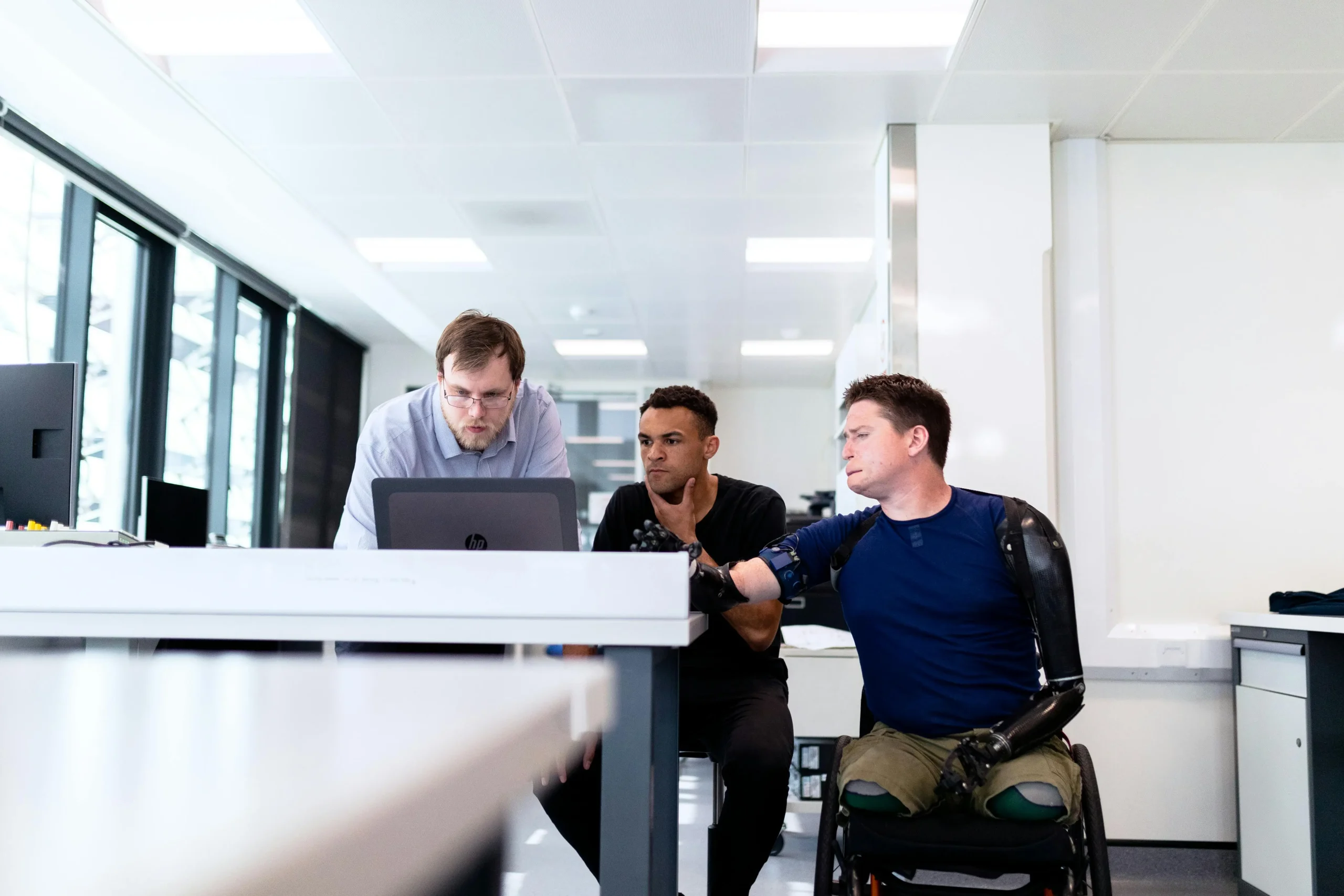Building confidence as a disabled job seeker is essential for successfully navigating the employment market. The journey may seem daunting, but with the right mindset, tools, and strategies, you can overcome the challenges and thrive in your career. Whether you’re just starting your job search or transitioning to a new role, self-confidence plays a vital role in helping you present yourself as a capable and motivated candidate.
This article will guide you through practical steps to boost your confidence, equip you with tools to succeed, and help you manage the emotional and mental challenges of job searching as a disabled professional.
Understanding Confidence in the Job Search for a Disabled Job Seeker
Before diving into tips and strategies, it’s important to understand what confidence means in the context of a job search. Confidence isn’t about having all the answers or never feeling uncertain. Rather, it’s about trusting your abilities, embracing your value, and moving forward despite potential setbacks. Confidence as a disabled job seeker also means understanding that your disability does not define your worth. Your skills, experience, and potential are what truly matter.
When you have confidence, you’re more likely to:
- Present yourself positively to employers.
- Showcase your strengths and skills during interviews.
- Handle rejection or setbacks without losing motivation.
The key is to remember that confidence is a skill that can be developed over time, and there are specific strategies that can help.
1. Recognize Your Strengths and Skills
The first step in building confidence is to focus on what you bring to the table. People with disabilities often develop unique strengths and problem-solving skills that are valuable in the workplace. Take the time to assess your abilities, both related to your field and your personal experiences.
Key Actions:
- Make a list of your skills, qualifications, and experiences. Include any specialized knowledge, certifications, or training you’ve acquired.
- Reflect on challenges you’ve overcome and the resilience you’ve developed in managing your disability. This resilience is a valuable asset to employers.
- Identify transferable skills that apply to many different roles, such as communication, time management, and adaptability.
Recognizing and articulating your strengths will help you feel more self-assured and confident during job interviews.
2. Overcome Self-Doubt by Reframing Negative Thoughts
It’s common for disabled job seekers to experience self-doubt, particularly when faced with societal stigma or past experiences of discrimination. These doubts can erode confidence and hinder your job search. A powerful way to combat this is to practice reframing negative thoughts into positive, empowering beliefs.
Key Actions:
- Identify negative thoughts, such as “I’m not qualified enough” or “No one will hire me because of my disability.”
- Challenge these thoughts by asking, “Is this really true?” More often than not, you’ll find that these beliefs are based on fear rather than facts.
- Replace negative thoughts with positive affirmations. For example, instead of thinking, “I’m not experienced enough,” say, “I have valuable experience and am constantly learning.”
This shift in mindset can gradually help you build a more positive and confident attitude.
3. Practice Interview Skills
Preparation is key to feeling confident during job interviews. Many disabled job seekers feel anxious about disclosing their disability or discussing accommodations, but with practice, you can approach these conversations with confidence and clarity.
Key Actions:
- Practice answering common interview questions with a friend, career coach, or in front of a mirror. This will help you become more comfortable talking about your skills and experiences.
- If applicable, prepare a brief, positive explanation of your disability and how you manage it in the workplace. Focus on your abilities, not your limitations.
- Be ready to discuss accommodations in a clear and professional manner. Research the types of accommodations that might be needed for the role and how they can help you perform your job effectively.
The more you practice, the more comfortable and confident you’ll feel when the time comes for interviews.
4. Build a Strong Support System
Your support system plays a crucial role in your confidence and overall well-being during your job search. Surround yourself with people who believe in your potential and can offer encouragement, advice, and constructive feedback.
Key Actions:
- Seek out mentors, both disabled and non-disabled, who can guide you through the job search process. Mentors can provide invaluable insights into career development and boost your confidence with their support.
- Join disability advocacy groups or professional organizations. These groups can offer networking opportunities, resources, and encouragement from others who understand the unique challenges of being a disabled job seeker.
- Lean on family, friends, and peers who uplift you. A supportive network can help you maintain a positive outlook and remind you of your worth, even during difficult times.
Having a strong support system can make all the difference when facing the inevitable ups and downs of a job search.
5. Leverage Assistive Technology and Resources
One way to build confidence is to equip yourself with the tools and resources that can help you succeed. Today, there are countless assistive technologies and accommodations designed to help disabled job seekers perform at their best.
Key Actions:
- Explore assistive technology options that can help you during your job search and in the workplace. This could include screen readers, voice recognition software, ergonomic equipment, or accessible communication tools.
- Familiarize yourself with employment resources specifically for disabled individuals. Many organizations offer job boards, career coaching, and resume-building services tailored to disabled professionals.
- Use accessible job search platforms like Equal Capable Jobs, which specialize in connecting disabled job seekers with inclusive employers.
By making use of available resources, you’ll feel more empowered and confident in your ability to succeed.
6. Set Realistic and Achievable Goals
Goal-setting can give you a sense of direction and purpose, which in turn boosts your confidence. Instead of feeling overwhelmed by the job search, break it down into manageable steps and celebrate your progress along the way.
Key Actions:
- Set both short-term and long-term goals for your job search. For example, a short-term goal might be to apply for three jobs a week, while a long-term goal could be securing a role within three months.
- Track your progress, and celebrate each milestone, no matter how small. Whether it’s landing an interview, receiving positive feedback on your resume, or connecting with a potential employer, recognizing your achievements will reinforce your confidence.
- Be patient with yourself. The job search process can take time, but every step forward is a step closer to your goal.
By focusing on achievable goals, you’ll maintain momentum and confidence throughout the job search process.
7. Know Your Rights as a Disabled Job Seeker
Knowing your rights as a disabled job seeker can give you a greater sense of control and confidence during the employment process. Understanding the legal protections available to you will empower you to advocate for yourself and ensure that you’re treated fairly.
Key Actions:
- Familiarize yourself with disability employment laws in your country. In the United States, for example, the Americans with Disabilities Act (ADA) ensures that employers cannot discriminate against qualified individuals with disabilities and must provide reasonable accommodations.
- Know when and how to disclose your disability. You are not required to disclose your disability during the application process, and you have the right to request accommodations after receiving a job offer.
- If you encounter discrimination or unfair treatment during your job search, seek legal advice or reach out to disability advocacy organizations for support.
Being informed about your rights will boost your confidence and help you navigate the job search with assurance.
8. Develop a Growth Mindset
A growth mindset can help you build resilience and confidence by focusing on continuous learning and self-improvement. Instead of viewing setbacks as failures, see them as opportunities to grow and develop your skills.
Key Actions:
- Embrace challenges as learning experiences. Each job application, interview, or networking opportunity can teach you something valuable, even if the outcome isn’t what you hoped for.
- Seek feedback from mentors, career coaches, or peers. Constructive feedback can help you identify areas for improvement and refine your approach.
- Stay open to new opportunities, even if they fall outside of your original career plan. Sometimes, unexpected paths can lead to rewarding careers that you hadn’t considered before.
A growth mindset will not only boost your confidence but also help you stay motivated and adaptable throughout your career.
Conclusion: Empowering Disabled Job Seekers Through Confidence
Building confidence as a disabled job seeker takes time and effort, but the rewards are immense. When you believe in your abilities and embrace your worth, you’ll be better equipped to navigate the job market, present yourself to employers, and succeed in your career.
By recognizing your strengths, overcoming self-doubt, practicing your skills, and leveraging resources, you can approach your job search with confidence and resilience. Remember, confidence isn’t about perfection—it’s about progress, persistence, and believing in your potential.
At Equal Capable Jobs, we are committed to empowering disabled professionals with the tools and resources they need to succeed in the workforce. Whether you’re just starting out or seeking a new opportunity, believe in yourself and your abilities. Your next great job opportunity is waiting for you.













